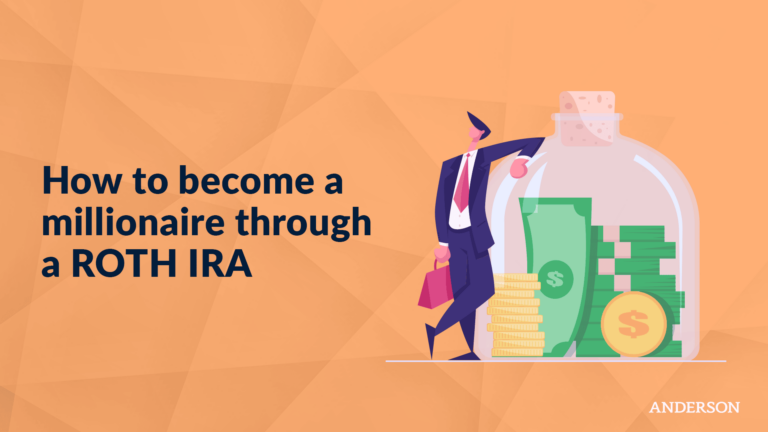What Investment Accounts Should I Put My Money In?
A question I get quite often is, “What’s the best investment account?” or “Where should I put my money?” This may sound generic, but let’s run through the major options when it comes to selecting the best investment account for your goals.
Updated September 17, 2021
Investment Accounts in the Banking World
First off, in the world of banking, there are checking and savings accounts. Most of us are probably pretty familiar with these types of accounts. Checking accounts don’t pay you anything on the money you keep there. With savings accounts, you might make a quarter of 1% per YEAR in interest on the funds in the account.
Then, there are certificates of deposit (CDs). These types of investment accounts will pay you a fixed interest rate, but you can’t touch the money for a predetermined period of time.
Investment Accounts in the Brokerage World
On the brokerage side of things, you have money market accounts. These provide a better rate of return than a savings account, but usually, the money market rate of return will be fairly low.
There are also other avenues where you could invest your money in the brokerage world, like actual brokerages. You could invest in exchange-traded funds (ETFs) or mutual funds. One note on mutual funds, though: I wouldn’t recommend a mutual fund because there are ETFs that will offer more bang for your buck with less fees.
The Truth About Savings Accounts
As an individual, we’re all pretty familiar with checking and savings accounts. And while these accounts are fine to have as an individual, it’s important to realize that the rate of return you’ll get on a savings account won’t match the rate of inflation. So, inflation goes up on average 2-3% per year. That means that, for every day your money sits in a savings account, it’s actually losing value.
Thus, as an individual, you may want to look into doing money markets or investing in the broader markets with ETFs or other investment vehicles.
ETFs, Dividend Aristocrats, and Dividend Kings
First off, there are multiple stock exchanges. There are the big ones most of us are familiar with — the Dow-Jones and the Nasdaq — as well as thousands of others. Not to mention the tens of thousands of individual stocks you could invest in.
An exchange-traded fund, or ETF, is a collection of different stocks that are organized around a certain theme or sector. For instance, some ETFs focus on just the staples and utility sectors. Again, there are thousands of these different ETFs — about 5,000, in fact.
Alternatively, you could choose to invest in specific individual stocks instead of a broader ETF. If you go this route, I would highly recommend you check out the Dividend Aristocrats and Dividend Kings lists in order to make a preliminary decision and help you narrow down the entire marketplace. These lists track the companies that have been paying increasing dividend amounts to shareholders between 25-50 years. Dividend Aristocrats have been paying dividends to shareholders for 25+ years, while Dividend Kings have been paying dividends to shareholders for 50+ years.
Dividend Growth Investing is a Great Way to Earn Passive Income
The strategy behind Dividend Growth Investing is that they are playing a longer timeframe game. Typically they buy and hold stocks that pay a high dividend, and use those dividend payments to buy more shares. The more shares you get, the more dividends you collect. This generates passive income that can last for generations.
Tax Treatment
When you receive dividends, they’re treated as long-term capital gains income taxed at the long-term capital gains tax rate. Long-term capital gains tax rates are greatly reduced compared to normal income tax rates, and currently stand at 0%, 15%, or 20% depending on your income.
How Should I Own It?
Regardless of where you invest, the next important question is: “How should I own it?”
If I own it in my individual, personal name, it’s mine. That means that, if I get into a car accident or one of my kids gets into an accident, that money is available to anyone who comes after me.
So, I tend to recommend LLCs for these types of funds. It’s like a virtual safe for your money so that it can’t be touched by lawyers, snoops, or anyone else.
There are even places in the US where your ownership of an LLC can be completely anonymous. I’m not talking about going to the Cook Islands or anything like that — just Nevada or Wyoming.
Tax Advantages
Number one, if you’re going to put money aside in savings, I wouldn’t recommend keeping it in a checking or savings account. Instead, I would encourage you to open a brokerage account or a Roth IRA brokerage account.
Roth IRAs are powerful tools because the growth in that account is tax-free. You fund it with after-tax dollars, but then never have to pay tax on its growth.
If you add an LLC into the mix, there are even greater tax-saving possibilities. On average, using business entities and other strategies, we save our clients $12,000 a YEAR in overpaid taxes.
The Takeaway
If you’d like to discuss your investing strategy with an experienced professional, schedule a complimentary consultation with one of my Senior Advisors today. On the call, you and a Senior Advisor will build the best custom entity structure for your individual investing and financial goals to help lower your taxes and protect everything you’re building. You can schedule online or by calling 888.871.8535.
Free Strategy Session with an Anderson Advisor
Receive a detailed risk assessment to assist in lowering problem areas that could wipe out all of your assets with one wrong move. Speak with an Anderson Professional Advisor to get your FREE Strategy Session.
Limited-Time Offer: ($750 value.)
















